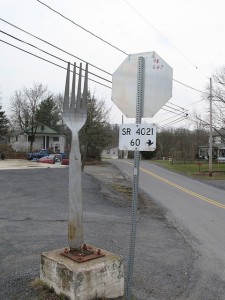I’ve heard a few indie authors over the years claim they are artists. Be careful, because when an author makes a statement like that, the word “artist” may denote a few veiled meanings. For example:
I am an artist and therefore
…I may break conventional rules.
Sometimes indie authors think poor editing and grammar make them an artist working outside of the box, thumbing their noses at the bleakness of conformity. Wrong! A lack of editing and grammar means that as a communicator, you’re only contributing to the dreaded “Indie Author Stigma” and nothing else.

Photo by Megan used under CC License
The craftsmanship of the product that bears your name must be as good (if not better) than what the traditional publishing industry can produce. It’s a fine standard and it should be adhered to and strived for at all times.
I love it when authors excuse their lack of standards by comparing themselves to Picasso. Well, I hate to break the news, but Picasso paid attention to many standards. He used paint and applied it to a canvas. If he wanted green paint, he had to mix yellow and blue. He followed formulas concerning composition and color schemes. If I’m not mistaken, Da Vinci did all of that as well.
…I am unsullied by the pursuit of profit.
Now that’s a big fat lie! Like any other artist, we all seek an audience. And the only way to reach an audience is to sell your material. Many blogs discuss Author Branding and similar marketing concepts. Let’s face it, we’re all business competitors in this new vibrant field.
This leads to another potential problem: free downloads. An absolutely foolish thing to do that gets right under my skin. The only thing achieved by a free download is that the author has just told the whole world that the value of his creation is zero. Now there are legitimate reasons for putting free material out there – fan fiction for one, since you can’t legally profit from it. Or perhaps you want to do a promotion for a period, or put out a short story to get your name known. But for the most part, making your work free is not the best idea.
…my work is an honest reflection of my world view and wasn’t generated by a marketing computer.
Ding! Ding! Ding! This is where the world of indie publishing and traditional publishing (thankfully) split apart. An indie author can explore themes and characterizations that traditional publishers shy away from.
The world of traditional publishing is a business. They will only invest the cogs of their machine into something based on a proven formula. They’re only hedging their bets for a payoff, and why shouldn’t they operate from that standpoint? They’re a business, making business decisions for the sole purpose of generating sales and profit.
This is the reason why most mass produced entertainment is nothing but a huge steaming pile of banal nonsense churned out for maximum appeal to the lowest common denominator.
Therefore, if you’ve got a great story about a teenage prostitute who gets addicted to drugs, and is then saved by a store front group of revivalist Christians, and from that group of Christians she finds a boyfriend, and they don’t have sex until after they’re married, you won’t be published traditionally.
However, if you make your Main Character a vampire, give her a zombie boyfriend love interest, who she met at an illegal vampire / zombie orgy, and of course set the story in a future post-apocalyptic dystopian society, you’ll have a better shot at a publishing contract.
So yes, indie writing can offer a freedom of expression and creativity that is unmatched anywhere. However, to be successful, one must also follow the established rules of the trade. So in my view, it’s really a mix of art and science. What are your thoughts?






